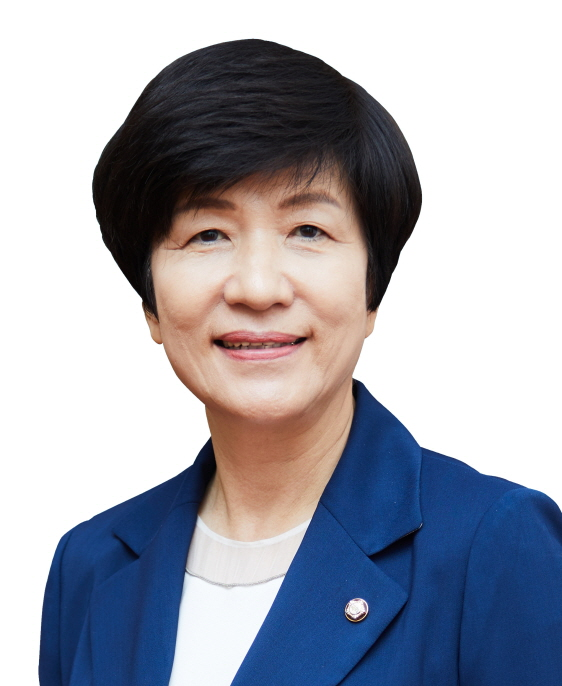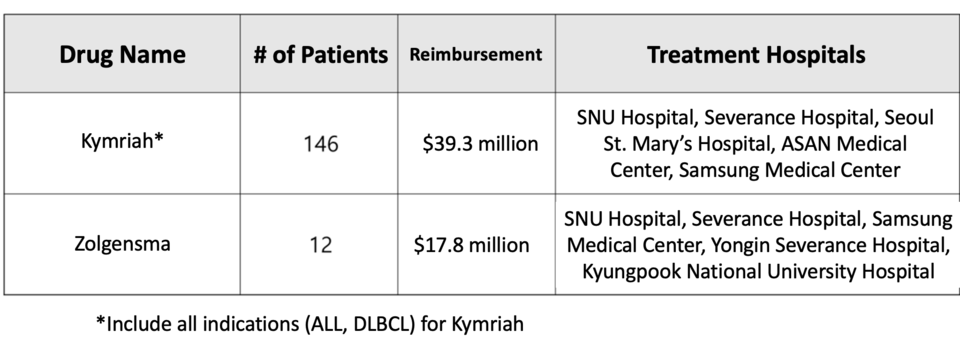Assembly Member Young-Joo Kim highlights concerns over the effectiveness of expensive therapies.

In a recent disclosure, Assembly Member Young-Joo Kim, a member of the National Assembly's Health and Welfare Committee, unveiled disconcerting findings regarding the efficacy of the CAR-T (Chimeric Antigen Receptor T-cell) therapy 'Kymriah.' The data, derived from sources including the Health Insurance Review and Assessment Service (HIRA), showed that more than 75% of patients who received this high-cost treatment, priced at a staggering $268,000 per administration, failed to experience any improvement.
Kymriah, primarily employed for treating B-cell acute lymphoblastic leukemia and mantle cell lymphoma in patients aged 25 or younger, was incorporated into healthcare coverage in April 2022. Meanwhile, 'Zolgensma,' an equally pricey medication used to treat spinal muscular atrophy, with a non-reimbursed one-time cost of $1.5 million, was included in coverage in July 2022, with patient copayments capped at approximately $4,500.
The inclusion of these high-cost medications in healthcare coverage prompted the establishment of a 'High-Cost Medication Management System' by HIRA in December 2022. This system monitors medication information and assesses patient responses to costly treatments, including Kymriah and Zolgensma.

According to data obtained from HIRA by Assembly Member Young-Joo Kim's office, 146 patients received Kymriah after its inclusion in healthcare coverage, incurring a total healthcare reimbursement cost of $39.1 million. For Zolgensma, 12 patients underwent treatment, resulting in a total healthcare reimbursement cost of $17.7 million.
The cost-effectiveness of these high-cost medications for severe conditions remains uncertain, prompting the National Health Insurance Service (NHIS) to track treatment outcomes for each patient. In cases where treatment proves ineffective, pharmaceutical companies are obligated to refund a certain percentage of the cost to the NHIS, in accordance with their contracts.
While the exact refund percentages between the NHIS and pharmaceutical companies are undisclosed, it is known that the refund rate for Kymriah is less than 50% even in cases of treatment ineffectiveness, whereas for Zolgensma, the refund rate reportedly exceeds 50%.

Assembly Member Young-Joo Kim elaborated on the findings, stating, "As of August, out of 130 lymphoma patients who received Kymriah treatment for over six months and submitted response evaluations to HIRA, only 99 were eligible for reimbursement, indicating that over 75% of treated patients did not experience meaningful improvement."
In contrast, for Zolgensma, only one out of nine patients who submitted results was eligible for reimbursement, suggesting that over 88% of the treated patients appeared to have benefited from the treatment.
Assembly Member Kim proposed a solution, saying, "To prevent coverage gaps, we should expand healthcare coverage for patients who require high-cost treatments, similar to what we did for Kymriah and Zolgensma. However, given the potential for hundreds of billions of dollars to be spent on medications with low treatment success rates, it is imperative to bolster the performance-based risk-sharing system, increasing pharmaceutical companies' refund rates when treatment outcomes fall short of expectations."
She further added, "Considering that patient copayments remain substantial even after the inclusion of high-cost medications in healthcare coverage, there is a pressing need to revamp the system to allow patients to receive partial refunds in cases of treatment ineffectiveness."

